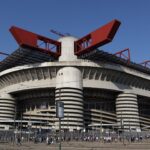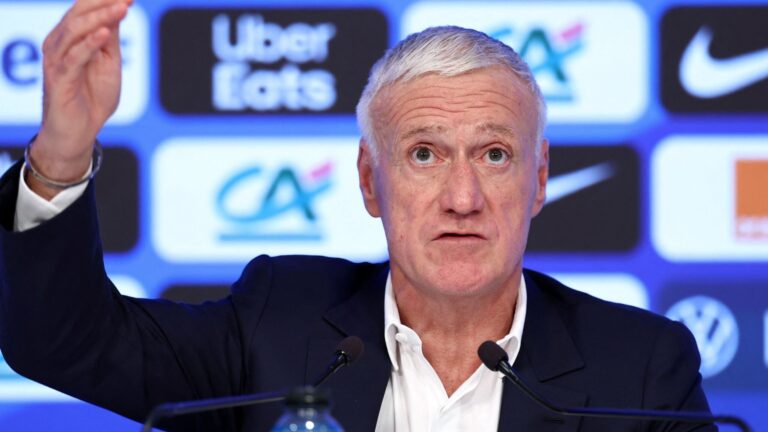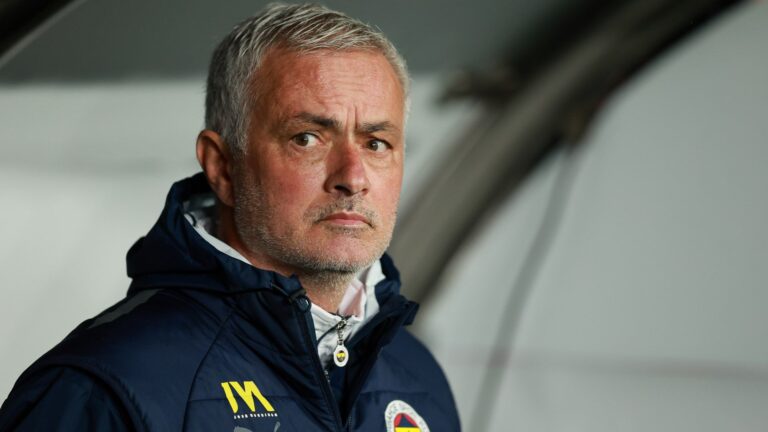


Unraveling the Drama in Milan’s San Siro Sale
In a landmark shift for Italian football, San Siro sale and the ensuing bid-rigging investigation have ignited heated debates among key figures. This acquisition by Milan and Inter from the Municipality of Milan for €197 million represents a pivotal moment, paving the way for innovative stadium developments while drawing scrutiny over procedural integrity.
The San Siro Acquisition: A New Chapter in Italian Football
Both Milan and Inter have secured ownership of the San Siro Stadium and its adjacent areas, concluding more than seven decades of public control. This transaction paves the way for the teams to advance their vision for a cutting-edge facility, crafted by Foster + Partners and MANICA Architecture-the same experts involved in the upcoming Manchester United project, set to rival as the UK’s premier football venue.
Immediate Backlash and Official Reactions
Excitement over the deal was short-lived, as allegations surfaced rapidly. Merely an hour post-signature, authorities in Milan launched a probe into potential irregularities in the bidding. Inter’s leader, Marotta, shared his dismay publicly, remarking on the rapid escalation as emblematic of Italy’s cumbersome administrative processes versus the streamlined operations elsewhere in Europe. He hailed the agreement as a transformative achievement fostering greater financial autonomy for the clubs.
Support from City and National Leaders
Marotta’s views were echoed by others, including Milan’s mayor, who upon returning from an international trip, staunchly defended the city’s handling of the sale. He asserted that all protocols were meticulously observed, ensuring the bidding remained open for an appropriate duration before proceeding. Similarly, Sports Minister Andrea Abodi underscored the transparency of Italy’s infrastructure efforts, such as the San Siro upgrades and Euro 2032 preparations, all aimed at serving the wider community.
Broader Implications for National Projects
In his comments, Abodi highlighted a wave of progress in Italy, including multiple active sites managed under special oversight, marking a significant advancement after years of stagnation. He stressed that the Milan initiative holds profound importance, extending beyond finances to enhance urban and national landscapes, in contrast to efforts that might undermine collective benefits through political or legal challenges.
Scrutiny Over the Bidding Process
The inquiry focuses on claims that rival participants, like Claudio Trotta from the Si Meazza Committee, were disadvantaged by a tightly scheduled tender. Trotta contended that additional groups lacked equitable opportunities, leading officials to initiate a thorough examination of the proceedings.
From Public Icon to Private Venture
This sale signifies the close of an era under government stewardship and the dawn of commercial management in Italian sports. Constructed in 1926 and repeatedly modernized, the stadium-formally Stadio Giuseppe Meazza-has been the stage for global tournaments, European finals, and intense local rivalries, embodying the spirit of Milan.
Future Plans and Shared Use
As per the agreement, the clubs will jointly utilize the current venue until the new 71,500-capacity stadium is ready, anticipated ahead of Euro 2032. The transformation will incorporate parks, commercial zones, and recreational amenities, evolving the location into a vibrant center for entertainment.
Boosting Serie A’s International Stature
For Milan and Inter, this step is crucial for elevating the league’s worldwide presence. Their unified announcement described it as a fresh era for Milan and Italian football, though supporters may feel a mix of enthusiasm and regret over losing a cherished landmark.
Overcoming Sentimental Hurdles
Club executives maintain that updating the stadium is vital for boosting revenue streams in today’s dynamic sports environment. Milan’s chair, Paolo Scaroni, recognized the emotional ties, noting the challenges from both red tape and public attachment. He pointed out that the existing site feels isolated outside of events, advocating for a multi-purpose arena that fosters daily activity.
Moving Forward Amid Uncertainties
Despite the ongoing investigation, the teams are committed to progress. The proposed stadium, valued at €1.2-1.5 billion, is designed to align with UEFA’s elite criteria, promote continuous income, and prioritize eco-friendly practices. The architectural plan honors the heritage of the original San Siro while introducing a forward-thinking, audience-oriented design.
Persistent Obstacles and Defenses
Optimism is tempered by hurdles, including opposition to dismantling a historic site and potential delays from legal issues. The brief bidding period continues to be a focal point of contention, yet municipal authorities insist the entire process adhered strictly to regulations, ensuring fairness and legality.
The San Siro Sale Controversy
Background of the €197 Million Bid-Rigging Investigation
The San Siro stadium, an iconic landmark in Milan shared by football giants Inter Milan and AC Milan, has been at the center of a heated €197 million sale and redevelopment probe. This investigation, led by Italian prosecutors, alleges bid-rigging during the tender process for the stadium’s potential sale or renovation. Key stakeholders, including real estate developers and city officials, were scrutinized for possible collusion that could have skewed the bidding process, potentially undervaluing the asset or favoring certain parties.
Prosecutors claim that irregularities in the bids submitted for the San Siro project may have violated EU competition laws, with the €197 million figure representing the estimated value of the deals under review. This bid-rigging scandal has drawn widespread attention in the world of Italian football and urban development, highlighting the challenges of managing historic venues amid modern commercial pressures.
Key Figures Involved in the Criticism
Inter Milan President Beppe Marotta and Milan Mayor Giuseppe Sala have emerged as vocal critics of the prosecutors’ handling of the investigation. Marotta, a prominent figure in Serie A football management, accused authorities of overreach, arguing that the probe could hinder Inter Milan’s long-term plans for the club. Similarly, Mayor Sala has emphasized the potential economic fallout for Milan, a city that relies on tourism and events tied to San Siro.
In interviews, Marotta stated that the investigation feels like an “unnecessary obstacle” to progress, potentially delaying crucial infrastructure upgrades. Sala, on the other hand, has pointed to the broader implications for Milan’s real estate market, suggesting that the scrutiny might deter foreign investors from participating in future bids for high-profile projects.
- Inter Milan President’s Main Points of Criticism:
- Claims that the €197 million bid-rigging allegations lack sufficient evidence and could tarnish the club’s reputation.
- Argues that the investigation is politically motivated, potentially influenced by local elections or rival interests in Italian football.
- Highlights the risk of stalled negotiations, which could affect Inter Milan’s ability to secure funding for player transfers and stadium enhancements like improved seating and fan facilities.
- Milan Mayor’s Key Arguments:
- Stresses that the prosecutors’ approach might discourage international bids for San Siro, impacting Milan’s status as a global city.
- Points out potential job losses in the construction and hospitality sectors if the project faces indefinite delays.
- Advocates for a more balanced review process, suggesting that EU-sanctioned independent audits could replace what he calls “overly aggressive tactics” by local authorities.
Implications for Italian Football and Urban Development
The €197 million San Siro bid-rigging investigation has ripple effects beyond the courtroom, affecting the landscape of Italian football and Milan’s urban planning. Critics like Marotta and Sala argue that such probes could set a precedent for how sports infrastructure deals are handled, potentially leading to more stringent regulations on bid processes.
For Italian football, this case underscores the intersection of sports, business, and politics. Inter Milan, as a top Serie A club, relies on San Siro for revenue from matches and events, and any delays could impact ticket sales, broadcasting deals, and sponsorships. Experts in sports law have noted that similar bid-rigging investigations in the past, like those in other EU countries, often result in revised tender rules to enhance transparency.
In terms of urban development, the San Siro project was envisioned as a catalyst for regenerating Milan’s surrounding areas, with plans for mixed-use developments including hotels and retail spaces. The criticism from figures like Sala highlights how bid-rigging allegations might slow down these initiatives, affecting local economies.
- Potential Economic Impacts:
- Estimated losses in tourism revenue if San Siro events are postponed, with Milan losing out on millions in visitor spending.
- Opportunities for job creation in construction, estimated at over 5,000 positions if the project proceeds without hitches.
- Long-term effects on property values in the San Siro district, as uncertainty could deter real estate investments tied to the €197 million valuation.
Legal and Ethical Considerations in the Investigation
Experts in anti-corruption and sports governance have weighed in on the ethical dimensions of the San Siro bid-rigging case. Prosecutors are focusing on compliance with Italy’s anti-trust laws, which mandate fair competition in public tenders. However, critics like the Inter Milan President argue that the investigation’s scope might infringe on business confidentiality, potentially exposing sensitive club strategies.
H4: Challenges in Proving Bid-Rigging
Proving bid-rigging in complex deals like the San Siro sale requires demonstrating coordinated actions among bidders, such as price-fixing or information sharing. Italian courts have historically handled similar cases by examining email trails and financial records, but this can be time-consuming, leading to delays that fuel criticism from stakeholders.
H4: Reforms Suggested by Critics
In response, Marotta and Sala have called for reforms, including:
- Implementing digital bidding platforms to reduce opportunities for collusion.
- Establishing faster review processes for high-profile projects to minimize economic disruptions.
- Encouraging independent oversight from bodies like the European Commission to ensure impartiality in investigations.
This ongoing saga in Milan not only spotlights the challenges of balancing heritage preservation with modern development but also serves as a case study for global sports management. With keywords like “San Siro bid-rigging investigation” and “€197 million controversy” gaining traction in searches, the story continues to evolve, drawing interest from football fans and urban policy experts alike.









